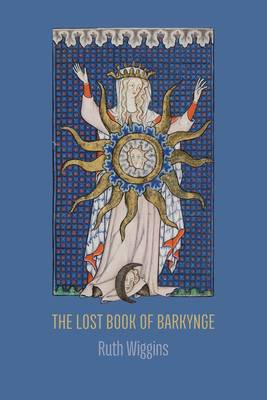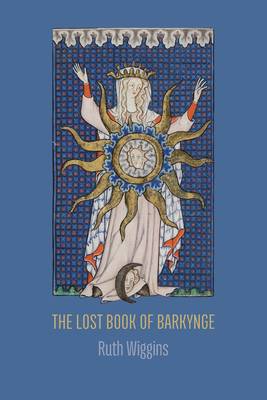
- Retrait gratuit dans votre magasin Club
- 7.000.000 titres dans notre catalogue
- Payer en toute sécurité
- Toujours un magasin près de chez vous
- Retrait gratuit dans votre magasin Club
- 7.000.000 titres dans notre catalogue
- Payer en toute sécurité
- Toujours un magasin près de chez vous
Description
In her debut collection The Lost Book of Barkynge, Ruth Wiggins recovers the forgotten voices of the nuns, abbesses and local women of the medieval abbey at Barking. Against a backdrop of famine, plague, war and spiritual upheaval, these poems explore the strange, uncertain days of the early abbey: mysterious visions, politics, violence and sisterhood, and end with the final abbess mourning the eradication of her home as the Dissolution unhouses her, her sisters, and countless others across Europe. Barking was one of the most significant abbeys in Britain and a centre of learning for women, it offered space to the devout, the bookish, and those who simply did not fit anywhere else. These poems introduce some remarkable characters: poets, visionaries, washerwomen and queens, and range from the sacred feminine to the protofeminist. Whether one reads The Lost Book of Barkynge as a series of monologues or as a sequence evoking time and place, what emerges is an excavation of forgotten stories. Here the lost voices of the women of Barking are restored in poems that voice the power and poignancy of their lives -
So our words let them reach then flicker into brightness.
"Ruth Wiggins' book demanded to be written. Channelling the voices of the abbesses of Barking, she leads us through the years 666 to 1539, the years their abbey thrived then declined by the marshy riverside of the Thames. Closely researched yet freely written in a rich diversity of forms, you should read this to understand our history, sacred and secular, but also for the story of our layered and watery landscape. It's a tale gleaming with the passionate intensity, intelligence and intimacy of nuns holding safe their little piece of land and learning in a world of princely power and avarice. Intermittently, local women interject in counterpoint. The pleasures of Ruth Wiggins' historically enriched language carefully wrought into the space of these elegant pages will draw you in, a rapt listener to this wonderful polyphony." -Harriet Tarlo
"This is a wise, ambitious and beautifully written book that speaks with and through the nuns, allowing us a new intimacy with them in time and space. Wiggins movingly, and with great care and imagination, deftly, gorgeously, brings women's voices and lives back into history." -Deryn Rees-Jones
So our words let them reach then flicker into brightness.
"Ruth Wiggins' book demanded to be written. Channelling the voices of the abbesses of Barking, she leads us through the years 666 to 1539, the years their abbey thrived then declined by the marshy riverside of the Thames. Closely researched yet freely written in a rich diversity of forms, you should read this to understand our history, sacred and secular, but also for the story of our layered and watery landscape. It's a tale gleaming with the passionate intensity, intelligence and intimacy of nuns holding safe their little piece of land and learning in a world of princely power and avarice. Intermittently, local women interject in counterpoint. The pleasures of Ruth Wiggins' historically enriched language carefully wrought into the space of these elegant pages will draw you in, a rapt listener to this wonderful polyphony." -Harriet Tarlo
"This is a wise, ambitious and beautifully written book that speaks with and through the nuns, allowing us a new intimacy with them in time and space. Wiggins movingly, and with great care and imagination, deftly, gorgeously, brings women's voices and lives back into history." -Deryn Rees-Jones
Spécifications
Parties prenantes
- Auteur(s) :
- Editeur:
Contenu
- Nombre de pages :
- 142
- Langue:
- Anglais
Caractéristiques
- EAN:
- 9781848618633
- Date de parution :
- 03-03-23
- Format:
- Livre broché
- Format numérique:
- Trade paperback (VS)
- Dimensions :
- 152 mm x 229 mm
- Poids :
- 217 g







